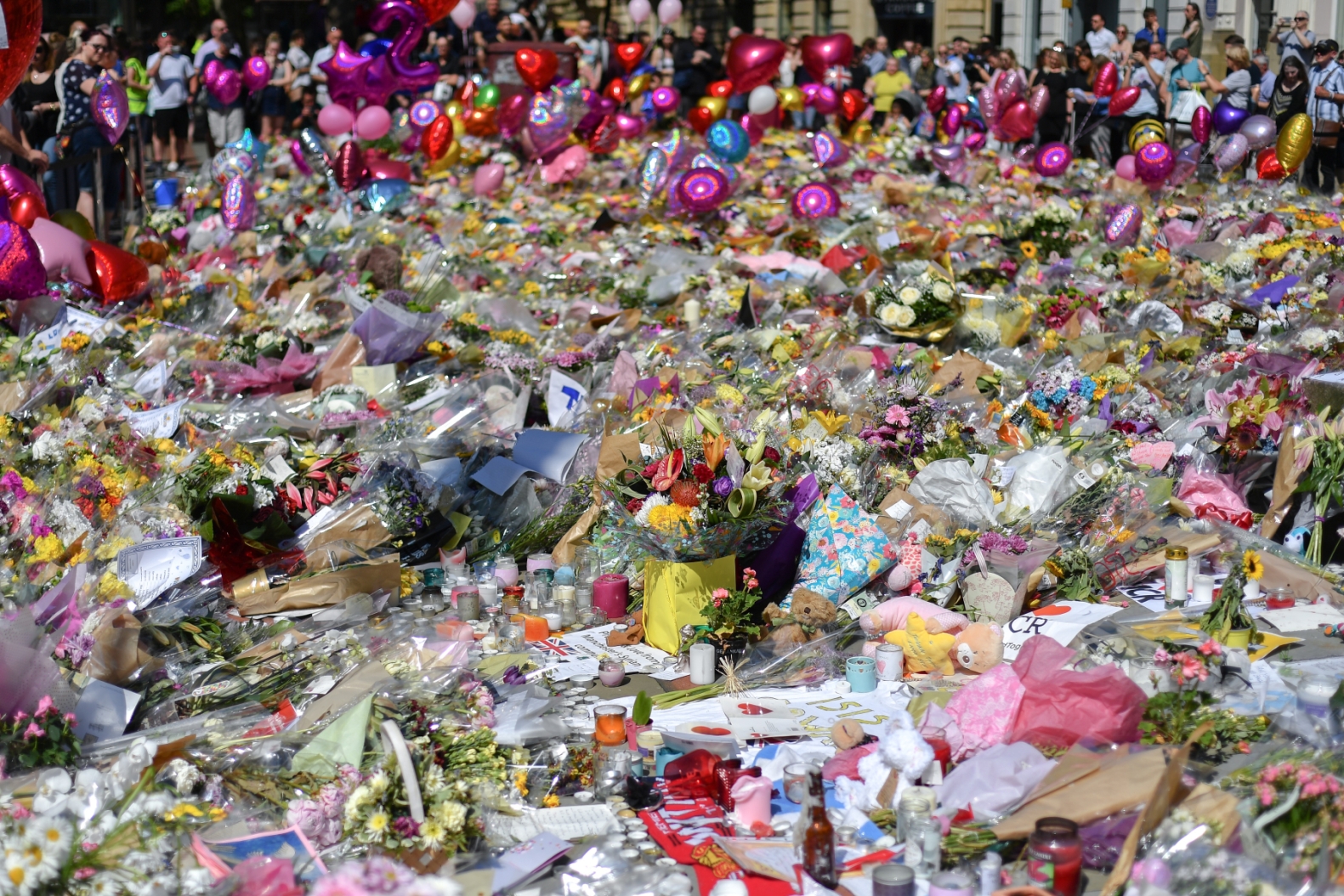A third of young Manchester Arena attack survivors haven’t had professional help
The terror attack, which killed 22 people and injured hundreds more, took place six years ago today
By Emma Wilkes

Almost one in three children and young people caught up in the 2017 Manchester Arena terror attack haven’t had any professional mental health support, a study has found.
A survey of 236 young people, called Bee The Difference, affected by the attack found that 29 per cent of them had not received any psychological help despite the majority feeling that they had felt psychologically damaged by the event, which occurred exactly six years ago today. All of the respondents were under 18 when the attack happened.
Consequently, most of those surveyed felt that they needed support but seven in ten had no professional help within the first month and almost one in three had nothing in the first year after the atrocity.
The attack on the evening of May 22, 2017 saw Salman Abedi detonate a suicide bomb at the end of an Ariana Grande concert in the arena, killing 22 people and injuring hundreds more.
Mhairi Sharp, chief executive of the National Emergencies Trust, said the report exposed a “a glaring gap” in the understanding of how disasters affected children and young people [via The Guardian]. The charity led the study alongside researchers at Lancaster University.
The report comes as the government is expected to publish a draft “survivor’s charter” in the coming weeks that will secure certain rights for survivors of terrorist attacks. The legislation has been worked on for almost five years and is expected to include a guaranteed timeline for victims to receive mental health support.
Three-quarters of the 236 young people surveyed said they had been psychologically damaged by the attack, while a fifth of them had been injured. Around four per cent had lost a relative or friend.
One young person who had witnessed the attack said they felt “forgotten” because they hadn’t been physically injured, despite suffering psychologically.
Meanwhile. the researchers said some professional help “offered by teachers, counsellors, GPs and others” had “inadvertently introduced more trauma”.
Another said they were by a tutor to “take the attack as a positive experience – that this ‘hardship’ would make me a stronger person. He said not many young people experience hardships nowadays. This felt totally insensitive, so I didn’t return.”
A third said: “I felt like being a survivor who was only injured mentally meant I had to explain how I felt and justify my thoughts as there were people a lot worse than me.”
However, the study also found examples of “incredible pastoral care in schools, where individuals went above and beyond to support young survivors’ new needs”.
The study called on public support to ensure early specialised trauma support is visible and accessible regardless of postcode, taking the onus off victims to search for it.
The report emphasised that recovery can take time, as one in four of those surveyed are still receiving psychological support, and victims should be able to choose the right help for themselves.
Cath Hill, of Lancaster University, the report’s lead author, said that even just “validating young people’s views” can make a “huge” difference to their wellbeing. She also suggested introducing an official survivor status for children’s school or college records to “prevent them from having to relive their trauma time and again.”
The Prince of Wales, a patron of the National Emergencies Trust, said the study made clear that “young people who have experienced the trauma of terrorism have needs unique to their age”.
He added: “These are minds that need the space to have their voices heard and feelings acknowledged. We must listen to their stories now, in order to learn for the future. I look forward to seeing the change that it creates.”
A Home Office representative told the BBC there was “practical and emotional support available to anyone impacted by terrorism, including a 24/7 support line, mental health assessments and referrals, and long-term peer support”.
They said the government had “worked to strengthen the support available to victims of terrorism, but we know there is still more to do”.
“The Home Office Victims of Terrorism Unit is currently conducting an internal review into the support package provided to victims of terrorism, to better address their needs following a terrorist attack,” they added.
Ariana Grande had also spoken about being psychologically affected by the attack. She revealed in 2018 that she had been diagnosed with PTSD after the event.
Meanwhile, legislation known as Martyn’s Law is set to be rolled out to prevent terrorist atrocities in public places such as major music venues.
The legislation is named after Martyn Hett, who died in the attack, and will require venues and local authorities to draft preventative plans against terror attacks.
